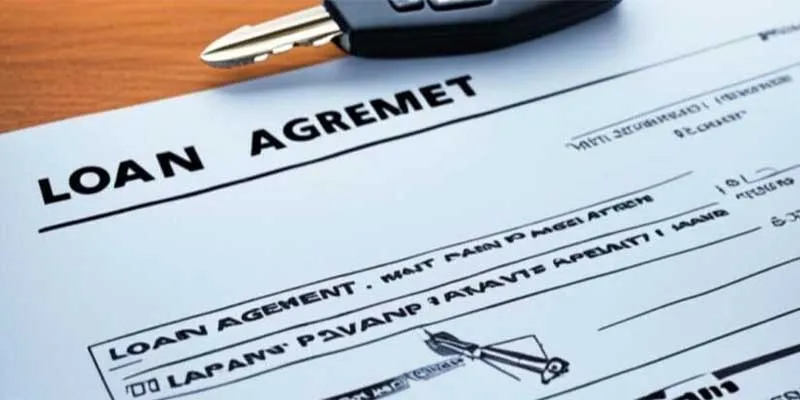Discover the Best Auto Loan Refinance Rates: Save Money with Better Deals
Auto loan refinancing is an essential financial tool that allows you to replace your existing car loan with a new one, usually at a lower interest rate. This can help reduce your monthly payments, shorten your loan term, or decrease the total interest charges over the loan period. Refinancing is particularly beneficial if your credit rating has improved since you originally obtained the loan or if market interest rates have dropped. By understanding how to approach refinancing and being aware of the available rates, you can make informed decisions to boost your financial health.

Understanding the Best Refinance Rates
Factors That Affect Refinance Rates
Several factors influence the interest rates you may receive when refinancing your auto loan. A primary factor is your credit score; a higher score often leads to lower interest rates, as it indicates to lenders that you are a reliable borrower. If some time has passed since you took your car loan, you might now qualify for better rates than when you originally borrowed.
Other external factors include general economic conditions, Federal Reserve policies, and inflation rates, all of which can affect market interest rates. The age, mileage, and overall condition of your car also influence the refinance rate offered, as lenders assess the vehicle’s value and remaining lifespan. By understanding these factors, you can better estimate the rates you might receive and work towards qualifying for more favorable refinance offers.
How to Compare Refinance Offers
When refinancing your auto loan, it’s crucial to shop around for the best rates and terms from various lenders. Start by gathering rate information from banks, credit unions, and online lending platforms. Pay close attention to the interest rate, but don’t overlook loan terms, fees, and any potential penalties for early repayment.
Online comparison tools can simplify this process by presenting different offers side-by-side. Some lenders offer pre-qualification, which provides a potential rate without impacting your credit score. Refinancing involves comparing various offers to find the best option that aligns with your money- saving objectives.
Fixed vs. Variable Refinance Rates
Deciding between fixed and variable interest rates is a significant consideration when selecting a refinancing option. Fixed rates remain constant over the loan’s duration, making monthly payments more predictable. This stability is beneficial if you plan to keep the loan for an extended period, as it shields you from potential rate increases.
Variable refinance rates, however, fluctuate based on market conditions. While initially lower than fixed rates, they carry the risk of increasing over time. Variable rates might be appealing if you expect to repay the loan soon or anticipate stable interest rates during the loan period. Carefully consider your financial situation and risk tolerance when choosing between fixed and variable rates, as this decision significantly impacts your savings.
Steps to Save Money with Auto Loan Refinancing
Auto loan refinancing can effectively reduce overall costs, but it must be approached strategically. By following these steps, you can secure the best terms and ensure refinancing works in your favor.
Improving Your Credit Score Before Refinancing
Refinancing relies heavily on your credit score, and a higher score often results in better rates. If your financial situation has improved since you first financed your car, now is an excellent time to refinance. Begin by reviewing your credit report for negative entries that may be lowering your score. Pay off credit card balances, ensure timely payments, and avoid applying for new credit before refinancing. Any improvement in your credit score can lead to a better interest rate, reducing your monthly payments and overall interest costs.
Calculating Potential Savings and Costs
Before refinancing, evaluate the potential benefits and costs. Start by determining your current loan balance and interest rate. Compare these with the offers from potential lenders to calculate monthly and total savings. Be sure to factor in any refinancing costs, such as application or processing fees, which could offset some savings. Also, consider the new loan term; while extending it can lower monthly payments, it might increase total interest paid. By analyzing these factors, you can make an informed decision about whether refinancing is right for you.

Choosing the Right Lender for Refinancing
Selecting the right lender is crucial for securing the best refinance deal. Interest rates, fees, and terms vary among lenders, so it’s essential to compare options. Evaluate traditional banks, credit unions, and online lenders to find the best rates and exceptional customer service. Look for lenders with transparent terms and reliable reputations. Additionally, some lenders may offer promotions or discounts that can further enhance your savings.
Conclusion
Auto loan refinancing can be a smart financial move if done correctly. By improving your credit score, analyzing potential savings and costs, and choosing the right lender, you can lower your monthly payments and total loan costs. Refinancing is not just about securing a lower interest rate; it’s about making informed decisions to achieve your financial goals. When done right, refinancing can help you save money and gain financial freedom.











